Does Relapse to Drug Use Mean Treatment Has Failed?

Introduction: Redefining Relapse in Recovery
Relapse is a challenging aspect of addiction recovery that often carries a stigma of failure. However, understanding the role of relapse as part of the addiction cycle is crucial for redefining its impact on treatment outcomes. This article delves into the nuances of relapse, its frequency, implications, and how it fits within the broader spectrum of managing addiction as a chronic disease.
What is a Relapse in Drug Addiction?
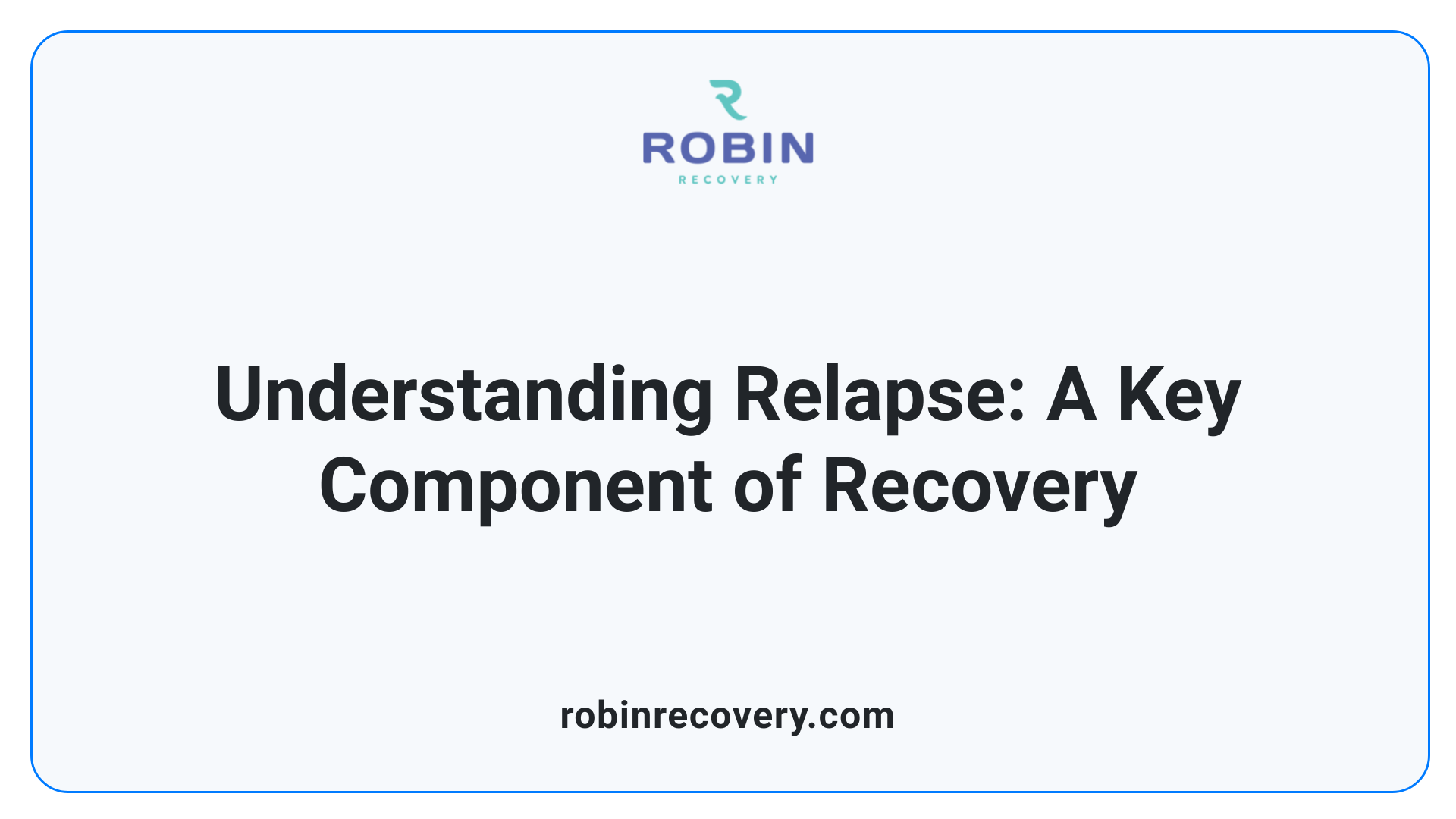
Definition of Relapse
A relapse in drug addiction refers to the process where an individual returns to drug use after a period of abstinence. This phenomenon is often misunderstood as a definitive failure in recovery; however, it is actually a crucial part of the journey towards lasting sobriety. Rather than signifying an end to recovery efforts, a relapse can indicate a need for reevaluation and modification of one's treatment plan.
Relapse in Addiction vs. Other Chronic Diseases
Research demonstrates that relapse rates for substance use disorders mirror those of other chronic illnesses. Approximately 40% to 60% of individuals with substance use disorders experience a relapse, a statistic comparable to the relapse rates found in other chronic conditions like hypertension (50-70%) and asthma (50-70%). This similarities in statistics suggest the need to approach addiction as a chronic illness requiring ongoing management and support, rather than a simple failure of will or treatment.
Brain Effects Contributing to Relapse
Addiction alters brain circuits associated with reward, self-control, and decision-making. These changes persist, leading to cravings and a heightened likelihood of relapse, even after extended periods of sobriety. The chronic nature of addiction means that many individuals may face multiple attempts before achieving sustained recovery. Effective strategies—such as medication-assisted treatment and behavioral therapies—are vital for managing these brain changes and improving the recovery process.
Relapse Does Not Equate to Failure
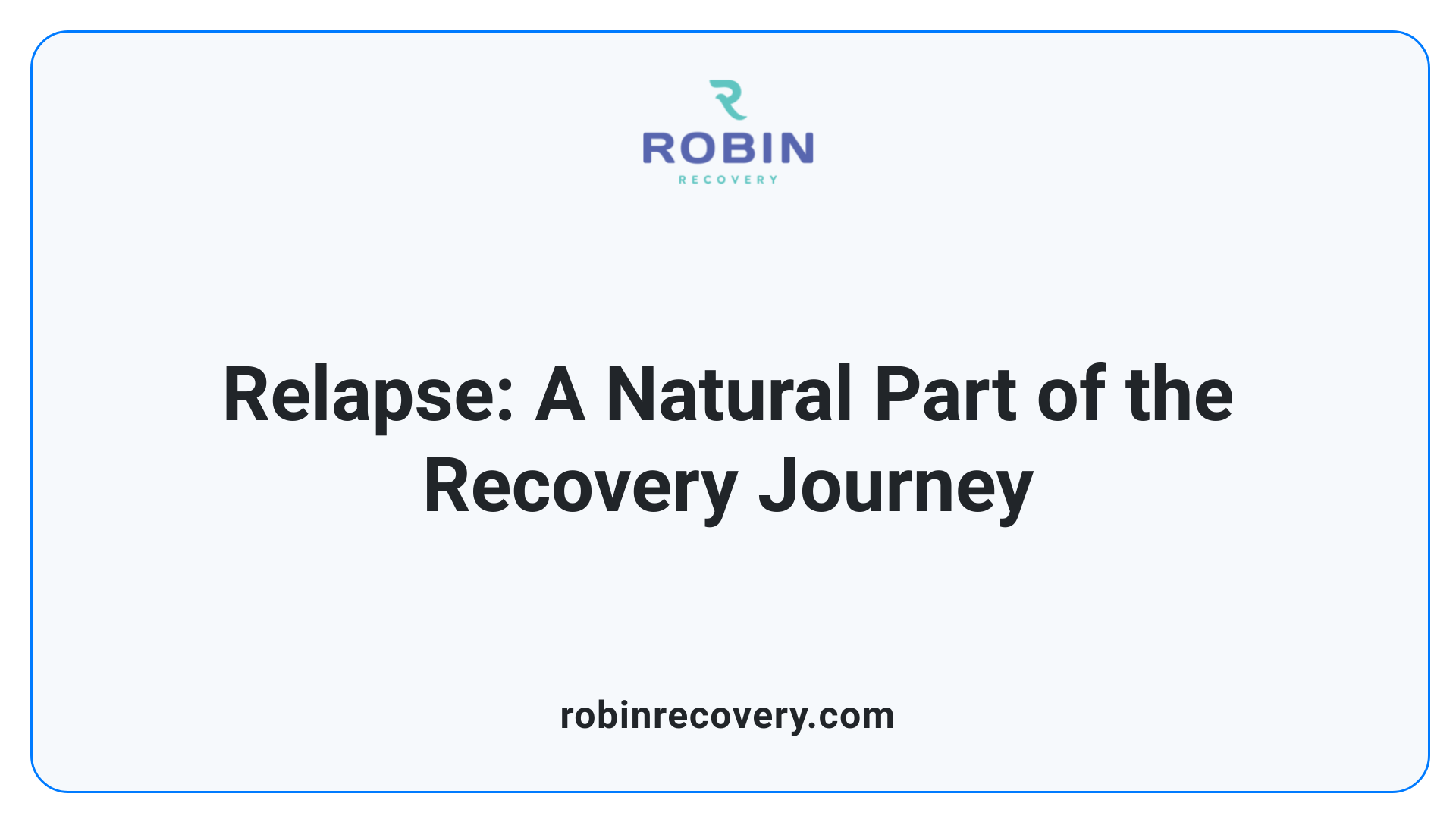
Understanding relapse as part of recovery
Relapse is often misunderstood as an indication of failure in recovery. However, research shows that it is a natural component of the chronic nature of addiction. Approximately 40% to 60% of individuals recovering from substance use disorders experience relapse, reflecting similarities in rates seen in other chronic illnesses, such as hypertension and asthma. Instead of being viewed negatively, relapse should be understood as a signal for a need to adjust treatment strategies or increase support rather than a complete breakdown of progress.
Distinguishing between lapse and relapse
It is essential to differentiate between a lapse and a relapse. A lapse refers to a temporary departure from recovery goals—usually a single use of substances—followed by a return to sobriety. In contrast, a relapse indicates a more prolonged return to previous substance use levels. Both terms underscore the importance of recognizing one’s triggers and urges, as well as the need for supportive interventions. Developing coping strategies, identifying emotional and situational triggers, and continually engaging with support systems can all help mitigate the risks associated with relapse and encourage lasting recovery.
Term Definition Duration Impact Lapse A brief return to substance use, quickly followed by recommitment to recovery. Short-term compromise; can be managed with support. Relapse A sustained return to prior usage levels after a period of abstinence. Signals a need for reassessment of treatment strategies for potential long-term impact.
Relapse Statistics in Addiction Recovery
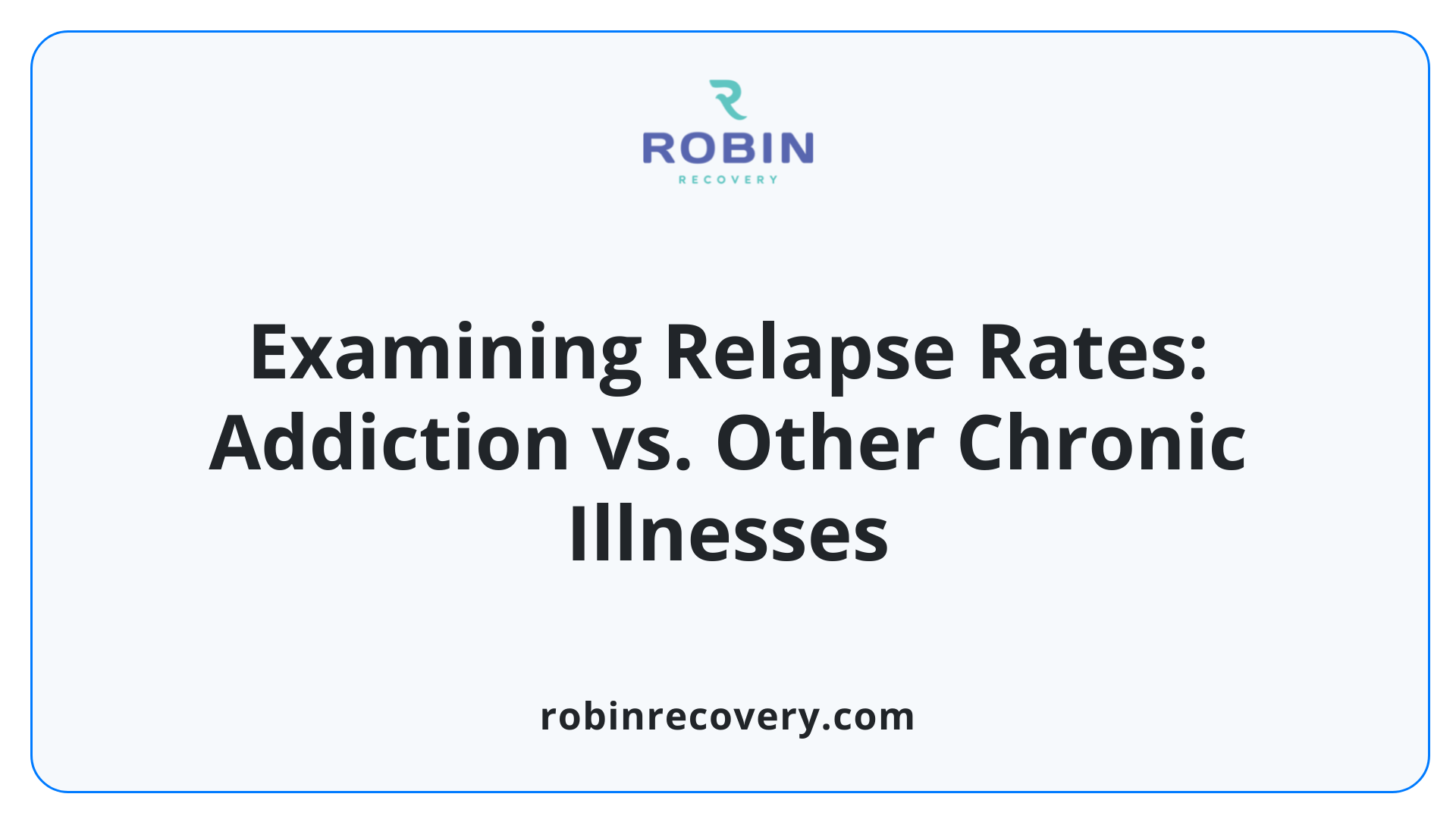
Relapse Rates in Addiction and Other Illnesses
Relapse is a common occurrence in the journey of recovery from addiction. Statistics show that 40% to 60% of individuals with substance use disorders will experience a relapse after treatment, according to the National Institute on Drug Abuse (NIDA). This figure parallels relapse rates seen in other chronic medical conditions such as hypertension and asthma, which have relapse rates of 50% to 70% and much like these illnesses, addiction requires ongoing management and support.
Interpretation of these Statistics
These statistics underscore an important perspective: relapse does not indicate failure. Rather, it highlights the chronic nature of addiction and the necessity for continual adaptation in treatment strategies. For instance, while completion of detox programs leads to recovery in about 68% of participants, the presence of co-occurring mental health issues can complicate this journey. Moreover, research suggests that approximately 75% of those who deal with addiction ultimately achieve recovery, reinforcing hope for individuals in recovery. Understanding these relapse rates can help individuals recognize that setbacks can be part of their recovery process, allowing for improvements and adjustments in their management plans.
Interpreting Relapse in Recovery: A Continuous Journey
How should one interpret a relapse during addiction recovery?
Relapse in addiction recovery should be viewed as an integral facet of a lifelong journey, rather than a definitive failure. It's essential to recognize that this is a common occurrence, with approximately 40% to 60% of individuals in recovery relapsing at some point. Rather than succumbing to despair, one can utilize this experience as a learning opportunity to understand triggers and implement necessary adjustments in recovery strategies.
The emotional reaction to a relapse can significantly impact recovery. Individuals are encouraged to practice self-compassion. Acknowledging that everyone faces challenges can foster resilience and mitigate negative feelings that may lead back to substance use.
Furthermore, support systems are vital. Open communication with friends, family, and counseling services can alleviate feelings of isolation and defeat. Resources like the Substance Abuse and Mental Health Services Administration (SAMHSA) National Helpline are invaluable for those needing guidance and support after a relapse. Engaging in support groups also provides a communal environment for sharing experiences and developing coping mechanisms.
Recognizing past successes and staying connected to supportive networks can make a significant difference, reinforcing the notion that recovery is not a straight path and setbacks can be managed effectively.
The Science Behind Relapse: Chronic Illness Perspective
Chronic Disease Framework
Relapse in addiction can be likened to the relapse rates observed in other chronic diseases, indicating a need for continued management. Research suggests that 40% to 60% of individuals recovering from substance use disorders experience a relapse, which parallels relapse rates in conditions like hypertension and asthma (50-70%). This similarity underscores the notion that addiction, like these other illnesses, necessitates lasting adjustments to treatment and support mechanisms.
Implications of Addiction as a Chronic Disease
Understanding addiction within a chronic disease framework shifts our approach to treatment. Instead of viewing relapse as a personal failure, it’s seen as an integral aspect of an ongoing health challenge. This perspective highlights how physiological changes affect the brain's self-control and decision-making areas, making relapse part of the cycle of recovery.
Here’s a comparative summary of relapse rates for clarification:
Condition Relapse Rate (%) Treatment Focus Substance Use Disorders 40-60 Ongoing management and support Hypertension 50-70 Lifestyle and medication control Asthma 50-70 Trigger management and adherence
It is essential to recognize that a relapse necessitates a reassessment and potential adjustment of treatment strategies rather than a complete failure of previous efforts. This perspective helps foster resilience and encourages ongoing engagement in the recovery journey.
Stages and Dynamics of Relapse
What are the stages of relapse in addiction?
Relapse often follows a sequence of stages, which can be categorized as:
- Emotional Stage
- This is the initial stage where the individual experiences feelings of stress or anxiety without acknowledging them. Often, there is denial and avoidance, which can lead to unhealthy coping mechanisms.
- Mental Stage
- In this stage, thoughts about using substances begin to emerge. The person may start reminiscing about past substance use and contemplating the idea of substance use as a solution to their current emotional state.
- Physical Stage
- This is the critical stage where the individual actually returns to drug use after a period of sobriety. The transition from thought to action can occur quickly if the earlier stages are not addressed promptly.
Understanding these stages is essential. Recognizing early signs of an emotional or mental relapse can prompt preventive measures before reaching the physical stage, where the consequences can be more severe.
Managing the process of recovery
Managing the process of recovery involves a supportive and proactive approach. Here are some strategies:
- Identifying Triggers: Knowing what specific situations, people, or stressors can lead to relapse can empower individuals to avoid these triggers or prepare coping strategies.
- Developing Coping Skills: Techniques such as mindfulness, stress management, and cognitive-behavioral strategies can help handle cravings and emotional turbulence effectively.
- Ongoing Support: Engaging in continuous treatment programs, attending support groups, and seeking guidance from healthcare professionals are vital for sustaining progress in recovery.
- Creating a Recovery Plan: Customizing a recovery plan that evolves with the individual’s needs can help maintain focus and resilience against relapse triggers.
By addressing the dynamic nature of relapse and recovery, individuals can cultivate a more comprehensive understanding and approach to managing their journey toward sobriety.
Prevention Strategies and Treatment Adjustments
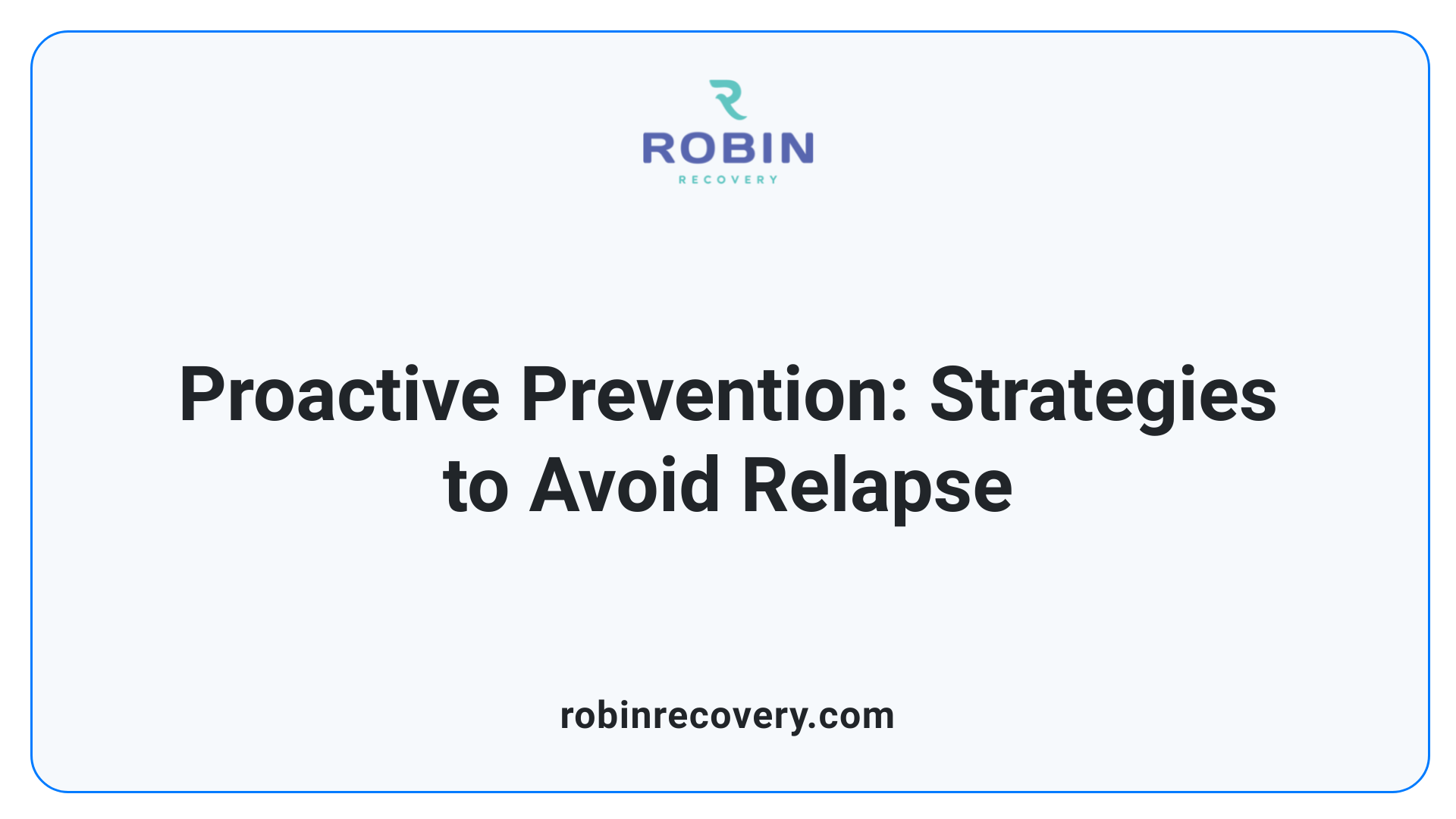
How can individuals prevent relapse during addiction recovery?
Preventing relapse is a multi-faceted approach that requires vigilance and proactive management. Below are effective strategies that individuals can employ:
- Recognizing Triggers: It’s essential to identify personal triggers such as emotional distress, social pressures, and drug-related cues. Awareness allows individuals to strategize and avoid these situations.
- Maintaining a Support Network: Engaging family, friends, or support groups can provide accountability and encouragement. A strong support system is crucial in moments of vulnerability.
- Adjusting Treatment Plans: Recovery is not static; regular reassessment of treatment plans is necessary. Individuals should communicate any challenges with their healthcare providers to make timely adjustments.
- Self-Care Practices: Incorporating activities that enhance wellbeing, such as exercise, mindfulness, and creative outlets, can help manage stress and cravings.
- Engagement in Therapy: Participating in counseling or group therapy can strengthen coping mechanisms and provide tools to handle high-risk situations. Cognitive-behavioral therapy (CBT) is particularly effective in preventing relapse.
- Prompt Intervention: Recognizing early signs of relapse is vital. Taking immediate action—whether resuming contact with a therapist or attending a support meeting—can help mitigate the risk of a full relapse.
Emphasizing these strategies creates a solid foundation to navigate the complexities of recovery and significantly lowers the likelihood of relapse.
Relapse as a Learning Opportunity
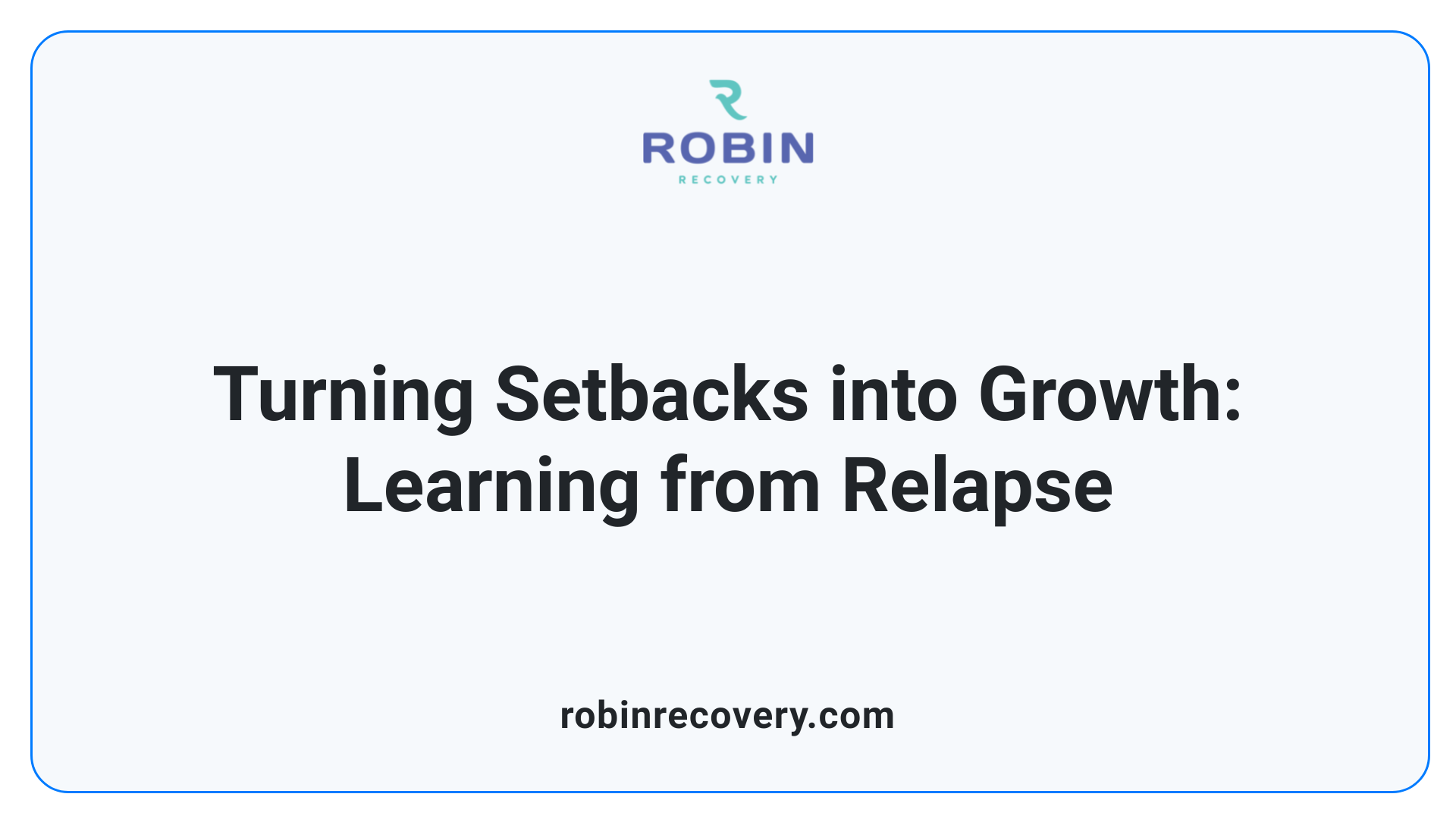
What can individuals learn from relapse in addiction recovery?
Relapse does not merely serve as a setback; it often opens doors for important learning experiences related to addiction recovery. Individuals who experience a relapse have the chance to reflect on their personal triggers and vulnerabilities, leading to a deeper understanding of their recovery process.
This period of reflection can prompt a reevaluation of existing treatment plans. For example, if stress or specific social environments are identified as triggers, individuals can work on modifying their surroundings to better support their sobriety. Furthermore, relapse encourages individuals to assess their support systems, ensuring that friends and family can provide adequate encouragement and accountability.
By adopting a perspective that views relapse as an educational experience, rather than a failure, individuals can make significant adjustments to their recovery strategies. Such lessons can enhance self-awareness and resilience, allowing individuals to embrace recovery as a continuous journey of personal growth.
Key takeaways from experiencing relapse
- Understanding Triggers: Recognizing specific emotional, psychological, and social factors that lead to relapse can inform better coping mechanisms.
- Strengthening Support Systems: Relapse can highlight gaps in support networks, prompting individuals to seek additional help from professionals or support groups.
- Adjusting Treatment Plans: Learning from a relapse can indicate the need for modifications in treatment strategies tailored to individual needs.
- Promoting Resilience: Embracing the notion that setbacks are part of the recovery journey can foster a more positive outlook and commitment to long-term sobriety.
- Continual Growth: Recovery is seen as a process involving ongoing learning, showing that every experience, including setbacks, contributes to ultimate success.
Conclusion: Embracing Relapse as Part of Recovery
Understanding relapse in the context of addiction recovery shifts the narrative from viewing it as a failure to seeing it as an integral part of managing a chronic disease. As individuals journey through recovery, relapses can offer valuable insights and opportunities for personal development, enhancing one's resilience and commitment to sobriety. It's crucial to approach these setbacks with compassion and determination to adapt and continue treatment successfully. Embracing relapse in this light can empower individuals to overcome challenges and progressively move towards long-lasting recovery.
References
- Treatment and Recovery | National Institute on Drug Abuse (NIDA)
- Relapse Doesn't Mean That You've Failed | Recovery is a Lifelong ...
- Is Relapse Part of Recovery? - Gateway Foundation
- Relapse - Alcohol and Drug Foundation
- Addiction Relapse: Risk Factors, Coping & Treatment Options
- Why do Addicts Relapse When Things are Good?
- Does Relapse Mean I've Failed in Addiction Recovery?
